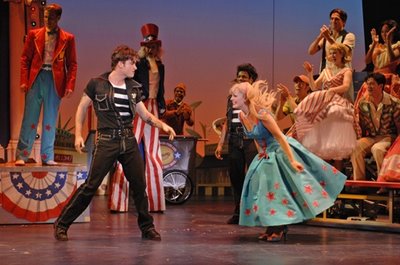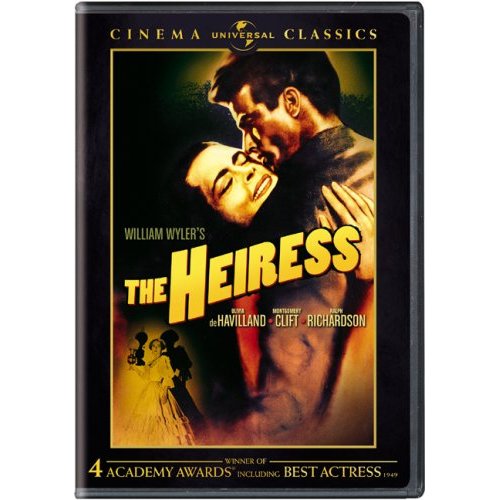The big deal arts-wise in Asheville this weekend is the inaugural WordFest, a poetry festival featuring a number of local and visiting poets at readings and talks around the city. It kicked off last night, and events continue through Sunday night. The website features live video so, if you can’t make it, you can tune in remotely.
I tend not to share my jetting-around calendar here because, as you may have gathered from all the excitement about the Jane Austen marathon on PBS a while back, there’s usually not much to report. But I’m looking forward to this weekend:
• Friday: Drinks with my friend Robert McGee, who has a new story in the just-launched Raleigh Quarterly.
• Saturday afternoon: Blue Ridge Rollergirls recruitment session at Malaprop’s.*
• Saturday night: Fatemeh Keshavarz and Galway Kinnell reading at Asheville WordFest.
• Sunday: Harold and Kumar Escape From Guatanamo Bay!!
* This has bad idea written all over it, but I can’t help it: I want to roll! I went to a match last weekend and it was, not to put too fine a point on it, awesome. Also, I seem to have come to the point in writing the book where even getting body-checked sounds more appealing than sitting in front of the computer any longer.
Archives for April 25, 2008
TT: Just add Waters
Two raves in today’s Wall Street Journal drama column, one on Broadway (Cry-Baby) and one out of town (Paper Mill Playhouse’s Kiss Me, Kate). Yay! Here’s an excerpt.
* * *
You want funny? I’ll give you funny, or at least tell you where to find it: “Cry-Baby,” the new John Waters musical, is campy, cynical, totally insincere and fabulously well crafted. And funny. Madly, outrageously funny. It is, in fact, the funniest new musical since “Avenue Q,” give or take “The Drowsy Chaperone.” If laughter is the best medicine, then “Cry-Baby” is the whole damn drugstore.
 Like the 1990 film on which it is based, “Cry-Baby” is a teen-musical spoof in which the standard bad-boy-meets-nice-girl plot is put through the shredder and turned into a zany spoof of buttoned-down ’50s conformism…..
Like the 1990 film on which it is based, “Cry-Baby” is a teen-musical spoof in which the standard bad-boy-meets-nice-girl plot is put through the shredder and turned into a zany spoof of buttoned-down ’50s conformism…..
This way lies trouble, for nothing in musical comedy is harder to bring off than a pure parody, since it deliberately omits the magic ingredient that makes most successful musicals run forever, which is sentiment. An unfelt musical is by definition emotionally hollow at the core, and so it lives or dies on the strength of its wit. If it isn’t brilliant but merely clever, it loses steam and limps past the finish line. That’s the great thing about “Cry-Baby”: It never goes limp. Broadway debutants David Javerbaum (the executive producer of “The Daily Show”) and Adam Schlesinger (the bassist of the brainy rock band Fountains of Wayne) have written an unbroken string of super-smart pop-music genre send-ups that are both unexpectedly hummable and full of neat rhymes…
Cole Porter launched his career by writing old-fashioned musicals with tissue-thin plots and immortal songs, and lived just long enough to see the coming of shows whose books were dramatically sound–and to write one himself. “Kiss Me, Kate,” the musical version of “The Taming of the Shrew” that Porter wrote in 1948 in collaboration with Sam and Bella Spewack, is one of the three or four best Broadway musicals of the “Oklahoma!” era, a masterpiece of tunefulness and charm. It doesn’t get performed nearly often enough, though, so I urge you to head out to New Jersey to see Paper Mill Playhouse’s new revival, which couldn’t be more satisfying….
James Brennan, who directed Paper Mill’s superb 2004 production of “She Loves Me,” has done even better by “Kiss Me, Kate,” working closely with Patti Colombo, whose dance numbers are seamlessly interwoven with the dialogue scenes. Ms. Colombo is one of the most imaginative musical-comedy choreographers around–her staging of “Too Darn Hot” stopped the show–and I can’t see why Broadway hasn’t snapped her up.
* * *
Read the whole thing here.
TT: Copland in Hollywood
 It’s always puzzled me why Aaron Copland’s film music isn’t better known. He wrote the scores for four major Hollywood films, Of Mice and Men, Our Town, The Red Pony, and The Heiress, the last of which won him a best-score Oscar in 1949. These scores were hugely influential in Hollywood–Copland more or less created the “American sound” that can be heard in such better-known scores as Hugo Friedhofer’s The Best Years of Our Lives and Jerome Moross’ The Big Country–and the films themselves attracted a fair amount of critical attention, The Heiress in particular. Yet none of Copland’s film scores has been recorded in its entirety, nor has anyone written a book specifically devoted to his film music. Why not?
It’s always puzzled me why Aaron Copland’s film music isn’t better known. He wrote the scores for four major Hollywood films, Of Mice and Men, Our Town, The Red Pony, and The Heiress, the last of which won him a best-score Oscar in 1949. These scores were hugely influential in Hollywood–Copland more or less created the “American sound” that can be heard in such better-known scores as Hugo Friedhofer’s The Best Years of Our Lives and Jerome Moross’ The Big Country–and the films themselves attracted a fair amount of critical attention, The Heiress in particular. Yet none of Copland’s film scores has been recorded in its entirety, nor has anyone written a book specifically devoted to his film music. Why not?
You guessed it–Copland’s film music is the subject of my “Sightings” column in Saturday’s Wall Street Journal. Pick up a copy of tomorrow’s paper, turn to the “Weekend Journal” section, and read all about it.
UPDATE: Read the whole thing here.
TT: Almanac
LLOYD: That bitter cynicism of yours is something you’ve acquired since you left Radcliffe.
KAREN: That cynicism you refer to I acquired the day I discovered I was different from little boys.
Joseph L. Mankiewicz, screenplay for All About Eve
